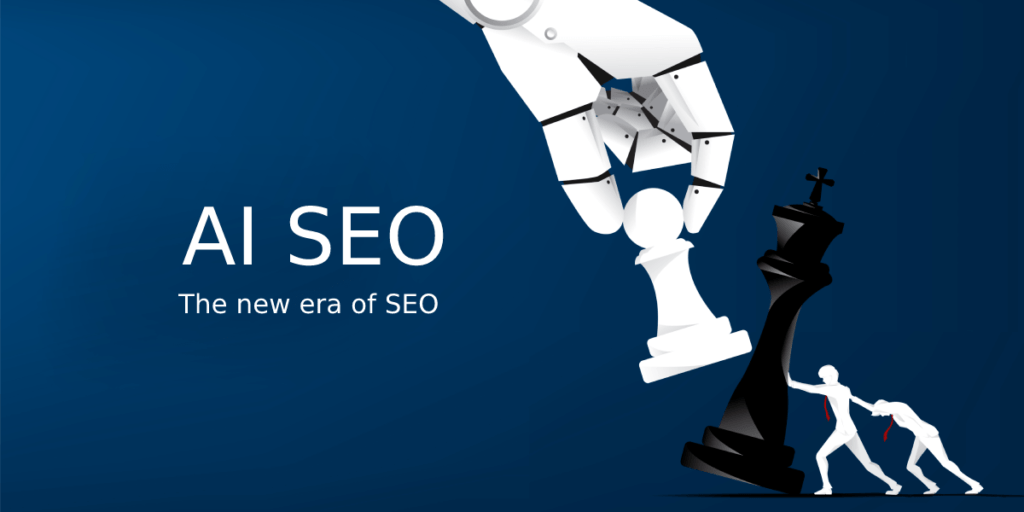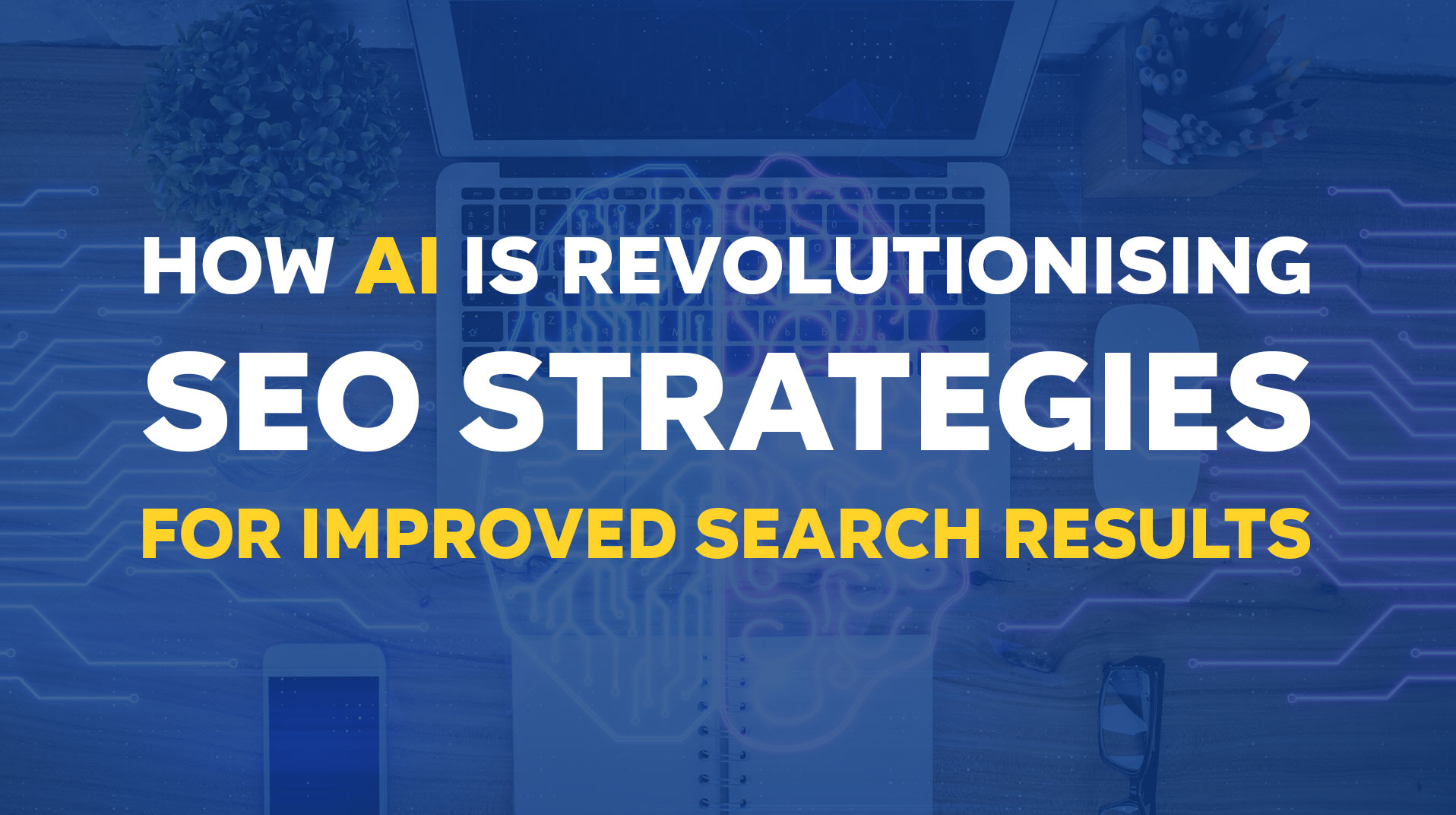The Transformative Role of AI in SEO: Strategies for Success
Understanding AI in SEO
AI in SEO refers to the use of machine learning algorithms and data analytics to optimize web content and improve search engine rankings. By analyzing user behavior, search patterns, and content performance, AI tools can provide insights that help marketers make informed decisions.
The Evolution of Search Engines
Search engines have evolved from simple keyword matching systems to complex algorithms that consider various factors, including user intent, context, and content relevance. AI plays a crucial role in this evolution, enabling search engines to deliver more accurate and personalized results.
How AI Works in SEO
AI utilizes data to learn and adapt. Machine learning algorithms analyze vast amounts of information, identifying patterns and trends that can inform SEO strategies. This capability allows marketers to optimize their content and improve user experience.

Key Benefits of AI in SEO
- Enhanced Keyword Analysis: AI tools can analyze vast amounts of data to identify trending keywords and phrases that resonate with your target audience. For instance, Ubersuggest offers robust keyword analysis features that can help you uncover valuable insights.
- Content Optimization: AI-driven content tools, such as Clearscope, enable marketers to optimize their content for better visibility. These tools suggest relevant topics and keywords to include, ensuring your content ranks higher on search engines.
- Predictive Analytics: AI can predict future trends based on historical data, allowing marketers to stay ahead of the competition. By analyzing search engine algorithms, AI can help you anticipate changes in ranking factors.
- Improved User Experience: AI can analyze user behavior and preferences, allowing businesses to tailor their content and improve user experience. Personalized content increases engagement and can lead to higher conversion rates.
- Automation of Repetitive Tasks: Automating routine SEO tasks frees up time for marketers to focus on strategy and creativity. Tools like Zapier can automate processes such as reporting and data collection.

Effective AI-Driven SEO Strategies
1. Leverage AI-Powered Tools
Utilizing AI-powered SEO tools is essential for optimizing your strategies. Platforms like Moz and SEMrush offer comprehensive features for keyword research, site audits, and competitive analysis. By integrating these tools into your workflow, you can streamline your SEO efforts and achieve better results.
Moz: A Comprehensive SEO Solution
Moz provides tools for keyword research, link building, and site audits. Its features allow you to analyze your website’s performance and identify areas for improvement. The Moz community also offers valuable resources and insights.
SEMrush: Competitive Analysis
SEMrush is an all-in-one marketing toolkit that provides insights into competitors’ strategies. You can analyze their keywords, backlinks, and traffic sources, allowing you to adjust your approach accordingly.
2. Automate SEO Tasks
Automation is a game-changer in SEO. Tools like Zapier can automate repetitive tasks, allowing you to focus on strategic planning and content creation. By automating SEO tasks, you can improve efficiency and reduce manual errors.
Examples of Automation
- Reporting: Automate the generation of SEO reports to track your progress.
- Data Collection: Use Zapier to gather data from various sources and compile it into spreadsheets automatically.
- Social Media Posting: Schedule social media posts to promote new content without manual intervention.
3. Create AI-Driven Content
AI can assist in content creation by analyzing user preferences and generating relevant topics. For example, Content Marketing Institute provides resources on how to effectively implement AI in your content marketing strategy. By using AI to generate ideas and optimize content, you can enhance engagement and drive traffic.
AI Content Generation Tools
- Copy.ai: Generates marketing copy, blog posts, and social media content.
- Jasper: An AI writing assistant that helps create high-quality content quickly.

4. Stay Updated with Industry Trends
Keeping up with the latest trends in AI and SEO is crucial. Websites like TechCrunch and Gartner offer valuable insights into emerging technologies and their impact on SEO. Regularly reading industry blogs and reports will help you adapt your strategies accordingly.
Importance of Continuous Learning
The digital marketing landscape is constantly changing. Staying informed about new technologies and strategies will help you remain competitive and effective in your SEO efforts.
5. Engage with the Community
Participating in discussions on platforms like Warrior Forum can provide additional insights and networking opportunities. Engaging with fellow marketers can lead to collaborative opportunities and further enhance your understanding of AI in SEO.
Benefits of Community Engagement
- Networking: Connect with industry professionals and potential collaborators.
- Knowledge Sharing: Gain insights from others’ experiences and strategies.
- Support: Find answers to your questions and challenges.
6. Explore Academic Insights
For a deeper understanding of the impact of AI on search rankings, consider exploring research published in the Journal of Digital Marketing. Academic insights can provide a solid foundation for your strategies.
Importance of Research
Academic research often provides a theoretical framework that can inform practical applications. Understanding the principles behind AI and SEO can enhance your decision-making process.
7. Analyze Competitors
Using tools like SEMrush to analyze your competitors can reveal their successful strategies. Understanding how they leverage AI can give you ideas on how to improve your own SEO tactics.
Competitor Analysis Techniques
- Keyword Analysis: Identify the keywords your competitors are ranking for.
- Backlink Analysis: Examine their backlink profiles to find opportunities for your own link-building efforts.
- Content Gaps: Discover topics that your competitors cover that you do not, providing opportunities for new content.
8. Create Infographics
Infographics are a powerful way to present information visually. Consider using platforms like Visual.ly to create and share infographics that highlight AI's impact on SEO, which can attract backlinks and increase visibility.
Benefits of Infographics
- Engagement: Visual content is more likely to be shared and engaged with.
- Simplification: Complex information can be simplified and made more digestible.
- Brand Awareness: Infographics can help establish your brand as an authority in your niche.

Case Studies: Successful AI Implementations in SEO
Case Study 1: How a Leading E-commerce Brand Leveraged AI
A leading e-commerce brand implemented AI-driven tools to analyze customer behavior and optimize their product descriptions. By using AI analytics, they identified high-performing keywords and tailored their content accordingly. As a result, they saw a 30% increase in organic traffic within three months.
Case Study 2: Local Business Success with AI
A local business utilized AI tools to enhance its local SEO strategy. By analyzing local search trends and customer reviews, they optimized their Google My Business listing and increased their visibility in local search results. This led to a 50% increase in foot traffic to their store.

Challenges and Considerations
While AI offers numerous benefits for SEO, there are challenges to consider:
- Data Privacy: Ensure compliance with data protection regulations when using AI tools that collect user data.
- Quality Control: AI-generated content may require human oversight to ensure quality and relevance.
- Cost: Some AI tools can be expensive, so it’s essential to evaluate the ROI before investing.
The Future of AI in SEO
The future of AI in SEO is promising. As technology continues to evolve, we can expect more sophisticated tools that offer deeper insights and automation capabilities. Marketers who embrace these changes will be better positioned to succeed in the competitive digital landscape.
Emerging Trends to Watch
- Voice Search Optimization: With the rise of voice-activated devices, optimizing for voice search will become increasingly important.
- Visual Search: AI technologies are improving visual search capabilities, requiring marketers to adapt their strategies.
- Personalization: AI will continue to enhance personalization, allowing businesses to deliver tailored content to users.
Conclusion
The integration of AI in SEO is revolutionizing how businesses approach digital marketing. By leveraging AI technologies, marketers can enhance their strategies, improve search rankings, and create more engaging content. Embrace the power of AI in your SEO efforts, and stay ahead in the competitive digital landscape.
For more insights, check out these resources:
- Neil Patel for comprehensive guides on SEO.
- VentureBeat for articles on machine learning applications.
- Backlinko for effective SEO strategies.
- Forrester for insights on AI in marketing.
- Pubcon for conference presentations on digital marketing.
- SMX Conference for the latest trends in search marketing.
- Copyblogger for content marketing strategies.
- G2 for software reviews and comparisons.
- Zapier for automation tools.
- TechCrunch for technology news and trends.
- Visual.ly for infographic creation.



No comments: